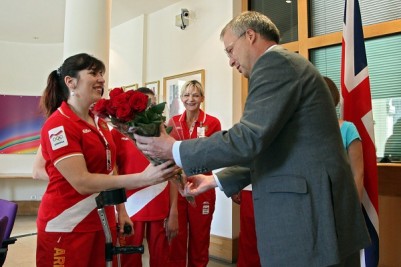The 14th Summer Paralympic Games opened on 29th August in London. And they are coming of age as a global sporting competition. These will be the biggest Paralympics Games ever with 4,200 athletes representing 165 countries.
Britain feels a special attachment to the Paralympics. The idea of sports for disabled people can be dated to the work done at Stoke Mandeville Hospital in southern England with veterans returning from the Second World War. As the 1948 London Olympics opened, 16 disabled men and women took part in a javelin and archery competition at the hospital.
The first ‘parallel Olympics’ were held after the 1960 Olympic Games in Rome. With that heritage, it is not surprising that tickets for the 2012 London Paralympics have sold out. A number of countries, including Channel 4 in the UK, will broadcast parts of the Paralympics live.
The Paralympics are producing their first global superstars. Who will not recognise the amazing Oscar Pistorius the South African paralympian who runs on metal blades and how made history by participating both in the London Olympics and Paralympics. He showed that paralympian athletes have nothing to prove by reaching the semi finals of the 400m in the Olympics.
For me though just as inspiring are the stories of the two Armenian paralympians, the weight lifter Greta Vartanyan and the swimmer Margerita Hovakimyan whom I have been privileged to meet in the run-up to the London Games.
They have battled against the odds to be recognised as legitimate athletes, to get financial support and to find places to train. Greta told me that she really enjoyed participating in the 2008 Beijing Paralympics but now feels that this is the time for her to bring back medals from London.
When Margarita met my predecessor less than a year ago, she still didn’t have a place to practice and a professional trainer. Just getting to London has been an achievement for Greta and Margarita.
I really wish them the very best of luck and hope that they will bring medals back to Armenia.

